
 Flash News
Flash News
Gunfire in Durres, a 30-year-old man is injured
Accident on Arbri Street, car goes off the road, two injured
Arrests of "Bankers Petrolium", Prosecution provides details: Exported and sold 532 billion lek of oil, caused millions of euros in damage to the state
Ndahet nga jeta tragjikisht në moshën 28-vjeçare ylli i Liverpool, Diogo Jota
Posta e mëngjesit/ Me 2 rreshta: Çfarë pati rëndësi dje në Shqipëri
IDM's critical report on Albania: Corruption, nepotism and money laundering present

The Institute for Democracy and Mediation (IDM) published today in Tirana the Evaluation Report of the National Integrity System for Albania, on the effectiveness of the national anti-corruption mechanisms.
The report, a collaboration with the Organization Transparency International, with the support of the European Union, notes a decline in the public sector in terms of anti-corruption mechanisms, a stagnation in the media and civil society, while highlighting as the most important progress that in the judicial system and the prosecution .
"Albania's legislative framework remains fragmented and the effectiveness of reforms is limited; many public institutions lack the capacities, resources and staff necessary for their tasks", the report states.
In the Evaluation Report of the National Integrity System, an instrument of the organization Transparency International, good governance, transparency and accountability in the Assembly, government, political parties, judiciary, media, independent institutions, civil society organizations and private business are analyzed.
"Albania's public sector is the pillar with the lowest points, because it suffers from unclear professional standards, from the risk of corruption and from political influence ," the report states.
According to him, reform efforts fail to create a professional and accountable public sector, where unfair dismissals remain a significant concern.
The IDM states in the report that various forms of corruption are present in Albania, from petty corruption and nepotism to money laundering and state capture, which have increased significantly.
"Grand corruption and state capture have increased significantly in the last decade, as Albania has increased such risks through privatization, concessions and public-private PPP partnerships. "These ways of transferring public money and capital into private hands have been prone to corruption and are alleged to have contributed to the personal enrichment of government officials," the report states.
The economic sectors most affected by major corruption, according to this report, were energy, transport, construction, health and tourism.
"Money laundering and collusion between political parties, government officials and organized crime groups are worrying and have worsened," the report said.
The anti-corruption legislative framework is considered to be comprehensive enough, but not clear enough in defining the institutional responsibilities to implement it.
“Mungesa e transparencës lehtëson vendimmarrjen e korruptuar dhe kapjen e shtetit”, thekson raporti.
Pavarësisht Ligjit për të Drejtën e Informimit dhe Ligjit për Njoftimin dhe Konsultimin Publik, institucionet publike, sipas raportit, ende nuk arrijnë të zbulojnë të dhënat përkatëse buxhetore dhe të prokurimit, ndërkohë që proceset e konsultimit publik priren të jenë formale.
Në të theksohet se “ndikimi i qeverisë mbi Kuvendin është i rëndësishëm dhe institucionet e pavarura si KLSH, ILDKPKI dhe Avokati i Popullit ushtrojnë presion të kufizuar thelbësor mbi ekzekutivin për të hartuar politika efektive kundër korrupsionit”.
Pavarësisht një ligji të ri për prokurimin publik, raporti thekson se “procedurat e prokurimit publik në sektorin shëndetësor dhe në infrastrukturë vuajnë nga një sërë çështjesh që variojnë nga ofertat fiktive deri te mungesa e mbikëqyrjes efektive”, ndërsa “nuk bëhen të ditura detajet në lidhje me zbatimin dhe ekzekutimin e kontratave të koncesionit/partneritetit publik-privat (PPP)”.
Në këtë raport theksohet se zbatimi në praktikë i ligjit për parandalimin e konfliktit të interesit dhe për mbrojtjen e sinjalizuesve mbetet i dobët.
Mjedisi i biznesit në Shqipëri vlerësohet se ka mbetur i prirur ndaj korrupsionit për shkak të sfidave si informaliteti, administrata publike joefektive dhe besimi i ulët në sistemin e drejtësisë. “Rastet e zyrtarëve publikë që marrin pagesa nga sektori privat janë të përhapura, megjithëse ka pasur iniciativa për të reduktuar kontaktet mes bizneseve dhe zyrtarëve publikë”, thuhet në raport.
Në të theksohet se shoqëria civile, mediat dhe partitë politike kanë shënuar rezultate të dobëta.
“Besimi tek partitë politike është shumë i ulët, sepse partitë politike kanë përqafuar klientelizmin, duke ofruar përfitime në këmbim të mbështetjes elektorale dhe financiare, duke shtuar dyshimet për përfshirjen e grupeve kriminale në këtë marrëdhënie”, thuhet në raport.
Në raport thuhet po ashtu se Komisionit Qendror të Zgjedhjeve ende i mungojnë burimet e mjaftueshme për të monitoruar financimin e partive politike dhe të ndëshkojë shkeljet e ligjit nga partitë politike, ndërsa “ka akuza për ndërhyrje të partive politike në burimet dhe dhënat shtetërore”, por “mekanizmat për të parandaluar keqpërdorimin e burimeve publike gjatë fushatave politike janë joefektive”.
Lidija Prokic, këshilltare rajonale e organizatës Transparency International për Europën Lindore dhe Juglindore, Transparency International, tha në konferencë se raporti rendit një mori problemesh me korrupsionin dhe mosfunksionimin si duhet të mekanizmave kundër tij, që nga Kuvendi, qeveria dhe sektori publik, por shqetësim i madh është po ashtu gjendja e shoqërisë civile në Shqipëri, e cila nevojitet të veproë dhe të dëgjohet më shumë.
It emphasizes that civil society organizations monitor government accountability with various methods, but their influence is limited, while they face limited attention, constant intimidation, harassment and attacks.
As far as journalism is concerned, the report states that the materials prepared by the government and the hidden advertisements call into question the journalistic integrity and the public role of the media.
" Editorial independence is conditioned by the interests of the owners and it is estimated that the media promote the agendas of the government, business and criminal groups for personal gain in profitable markets", the report points out, which singles out as a problem restrictions on information for investigative journalists, civil society and professionals. the media.
"The creation of the Media and Information Agency in 2021 has further centralized the control of the content of information that is made public by government institutions," the report states.
He emphasizes that "media freedom in Albania has deteriorated", while "the media tends to be significantly politicized and the relationship between the government and media owners seems to be related to a mutual benefit: positive coverage for the government in exchange for access to public funds and the facilitation of administrative procedures ".
The report emphasizes that the editorial lines of the media are dictated by economic self-interest; the fact that the owners of the largest media companies are also active in sectors such as construction, health or finance.
"These relationships further develop into full client networks essential for grand corruption and the opportunity to profit from public contracts," the 2023 IDM report states, which follows the last one in 2016.
The report evaluates the reform in justice, the vetting process, as well as the establishment of a special prosecutor's office against corruption and organized crime, but emphasizes that the state of democratic governance has still deteriorated, while the state of the rule of law has slowly declined. There is also a deterioration in the protection of human and civil rights, where violations of the right to free assembly, illegal detentions and violations of the right to housing through forced evictions and destruction of property to create space for infrastructure projects in the capital./ VOA
Latest news






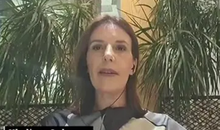

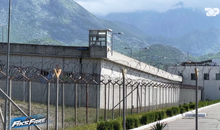

Greece imposes fee to visit Santorini, how many euros tourists must pay
2025-07-03 20:50:37
Don't make fun of the highlanders, Elisa!
2025-07-03 20:43:43
Gunfire in Durres, a 30-year-old man is injured
2025-07-03 20:30:52

The recount in Fier cast doubt on the integrity of the vote
2025-07-03 20:09:03


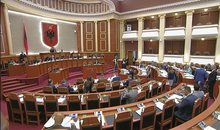

Heatwave has left at least 9 dead this week in Europe
2025-07-03 19:00:01

Oil exploitation, Bankers accused of 20-year fraud scheme
2025-07-03 18:33:52
Three drinks that make you sweat less in the summer
2025-07-03 18:19:35
What we know so far about the deaths of Diogo Jota and his brother André Silva
2025-07-03 18:01:56



Another heat wave is expected to grip Europe
2025-07-03 17:10:58

Accident on Arbri Street, car goes off the road, two injured
2025-07-03 16:45:27

Accused of two murders, England says "NO" to Ilirjan Zeqaj's extradition
2025-07-03 16:25:05




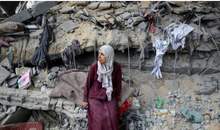
Gaza rescue teams: Israeli forces killed 25 people, 12 in shelters
2025-07-03 15:08:43
Diddy's trial ends, producer denied bail
2025-07-03 15:02:41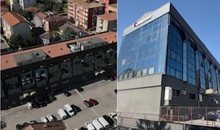

Agricultural production costs are rising rapidly, 4.8% in 2024
2025-07-03 14:55:13
Warning signs of poor blood circulation
2025-07-03 14:49:47
Croatia recommends its citizens not to travel to Serbia
2025-07-03 14:31:19
Berisha: Albania is the blackest stain in Europe for the export of emigrants
2025-07-03 14:20:19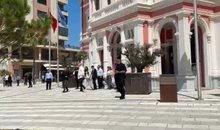

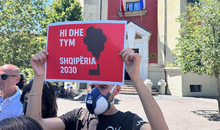
'Ministry of Smoke': Activists Blame Government for Wasteland Fires
2025-07-03 13:59:09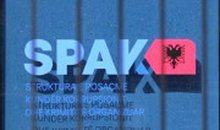

AFF message of condolences for the tragic loss of Diogo Jota and his brother
2025-07-03 13:41:36
Five healthy foods you should add to your diet
2025-07-03 13:30:19



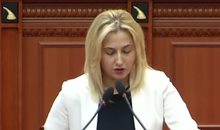


A unique summer season, full of rhythm and rewards for Credins bank customers!
2025-07-03 12:12:20

Fire situation in the country, 29 fires reported in 24 hours
2025-07-03 12:00:04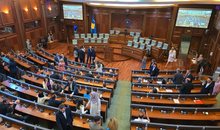
The constitution of the Kosovo Assembly fails for the 41st time
2025-07-03 11:59:57
The gendering of politics
2025-07-03 11:48:36
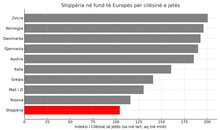
The price we pay after the "elections"
2025-07-03 11:25:39
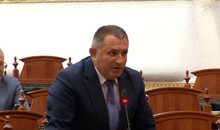
Xhafa: The fire at the Elbasan landfill was deliberately lit to destroy evidence
2025-07-03 11:08:43

The 3 zodiac signs that will have financial growth during July
2025-07-03 10:48:01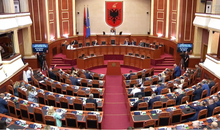
Democratic MP talks about the incinerator, Spiropali turns off her microphone
2025-07-03 10:39:24

Ndahet nga jeta tragjikisht në moshën 28-vjeçare ylli i Liverpool, Diogo Jota
2025-07-03 10:21:03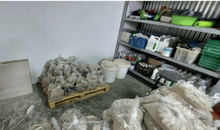
Cocaine trafficking network in Greece, including Albanians, uncovered
2025-07-03 10:10:12

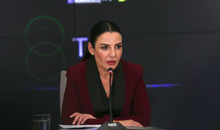
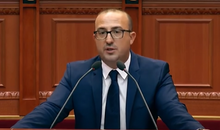
Korreshi: Election manipulation began long before the voting date
2025-07-03 09:39:13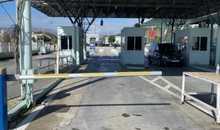
Arrest of Greek customs officer 'paralyzes' vehicle traffic at Qafë Botë
2025-07-03 09:28:41
After Tirana and Fier, the boxes are opened in Durrës today
2025-07-03 09:21:10
Enea Mihaj transfers to the USA, will play as an opponent of Messi and Uzun
2025-07-03 09:10:04

Foreign exchange, the rate at which foreign currencies are sold and bought
2025-07-03 08:53:50
Index, Albania has the worst quality of life in Europe
2025-07-03 08:48:10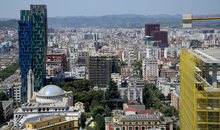
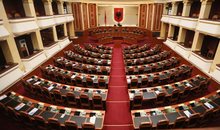

Horoscope, what do the stars have in store for you today?
2025-07-03 08:17:05
Clear weather and high temperatures, here's the forecast for this Thursday
2025-07-03 08:00:37
Posta e mëngjesit/ Me 2 rreshta: Çfarë pati rëndësi dje në Shqipëri
2025-07-03 07:46:48



Lufta në Gaza/ Pse Netanyahu do vetëm një armëpushim 60-ditor, jo të përhershëm?
2025-07-02 21:56:08
US suspends some military aid to Ukraine
2025-07-02 21:40:55



Methadone shortage, users return to heroin: We steal to buy it
2025-07-02 20:57:35
Government enters oil market, Rama: New price for consumers
2025-07-02 20:43:30
WHO calls for 50% price hike for tobacco, alcohol and sugary drinks
2025-07-02 20:41:53



